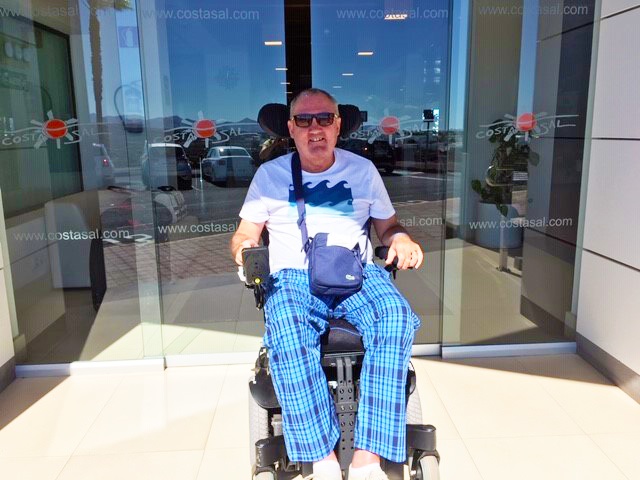Charity receives £75k funding to provide essential assistive tech to people with MND

A £75,000 grant is being given to the MND Association to fund vital wheelchair accessories and communication aids for people with motor neurone disease (MND).
Provided by The Wolfson Foundation, the grant will help improve the lives of MND clients by providing them with life-changing assistive technologies that may not be available through their local public health and social care services.
The association offers equipment loans and financial support for people with MND. This includes communication aids, such as augmentative and alternative communication (AAC), adapted switches, and apps, to support people who face communication difficulties or a loss of voice.
In addition, the charity’s Wheelchair Support Service can provide add-on accessories that the local wheelchair service is unable to fund, such as attendant controls, a powerpack, an adjustable backrest, or a seat riser.
Sally Light, Chief Executive of the MND Association, said: “A huge thank you to the Wolfson Foundation for this grant which will help to provide much needed support for people living with MND and improve their quality of life. The Foundation has generously supported the Association over many decades, awarding over £1.4m since 1993.
“They have funded items such as riser recliner chairs, communication aids and wheelchair accessories to support people living with the disease now, as well as recently awarding a grant of £750,000 towards the Lady Edith Wolfson Non-Clinical Fellowships helping us towards our vision of a world free from MND.”
The MND Association is a registered charity and membership organisation with over 10,000 members forming a powerful national and local network that provides information and support. Its goal is to improve the lives of those affected by MND both now and in the future.
Paul Ramsbottom, Chief Executive of the Wolfson Foundation, concluded: “We are delighted to support the remarkable work of the charity as it seeks to combat this most challenging of diseases. We hope that this support for specialist equipment will help to improve the lives of people living with MND.”

